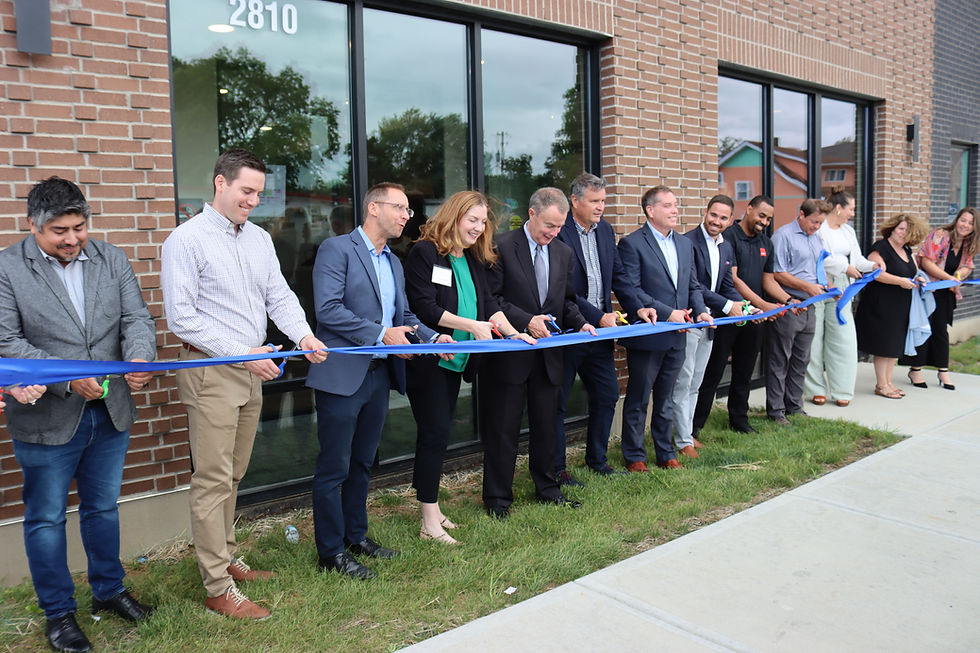The Problem with Financial Aid – And What We Can Do About It
- Feb 25, 2022
- 3 min read
Updated: Nov 11, 2024
Many students throughout the country live under the impression that favorable career outcomes, economic and personal stability, and mutual respect are based upon one thing: a college degree. What happens, then, when the very thing that children are raised to believe as an almost necessary component of successful future becomes shockingly, cripplingly expensive? Where do students turn to achieve their post-secondary goals when so many people lack the financial resources to complete educational programs?
For many, the answer is financial aid.
On its face, and especially to those who attended higher education in past generations, financial aid is a natural solution to the problem. Though the cost may be high, and interest rates cumbersome, the prosperity promised to people with a college degree should make paying off debt easy. Sadly, for too many graduates, this promise is left unfulfilled.
What happens when a student loses familial or structural support in the middle of their degree path due to personal choices or legal issues? Or when a student must withdraw from classes because of a tragedy or unforeseen barrier? What happens when the value of a college degree in many fields is simply not what it used to be, leaving graduates unequipped to begin paying back their loans even after finding employment? This is the case for millions of Americans from every walk of life. To get the full story, one need only look at the numbers:
46 million Americans have student loan debt.
The total amount of student loan debt totals nearly $1.75 trillion.
11.1% of borrowers (over 5 million people) were either behind on payments by more than 90 days, or in default.
And that’s just the general picture. Things become even more staggering when looking at specific demographics and student outcomes:
38.6% of people who take out student loans do not graduate in a six-year span. This figure rises to 54% when focusing specifically on Black students.
Black and African American college graduates owe an average of $25,000 more in student loan debt than white college graduates
Four years after graduation, 48% of Black students owe an average of 12.5% more than they borrowed.
Two things are clear:
Students have a distinct need and desire for meaningful financial aid.
The current system of financial aid as it functions in America is crippling students of different races, backgrounds and educational outcomes with high levels of debt.
What can be done to remedy these issues?
Comprehensive, wraparound and non-loaned scholarship packages like the ones offered by CREA Foundation are one way to provide lasting and thorough financial relief to the students that need it the most. By providing aid for all four years of college, CREA Foundation ensures a stable, consistent educational experience that is far more likely to result in a gainful degree. With part of every scholarship dedicated to living costs, counseling and other resources outside of the classroom, students can spend their time centering on their education. And with a focus on low-income communities, CREA Foundation can ensure that those who have the greatest need, and possibly the greatest opportunity, in repaying student loans have another way to successfully attain a college degree.
CREA Foundation’s Executive Director Arvetta Jideonwo has seen firsthand how financial aid of this nature can transform the lives of students.
“For all students, it is critically important to complete the Free Application for Federal Student Aid (FAFSA) as it can provide access to federal grants and work study opportunities to ensure they persist from year to year through their post-secondary education journey. One student I know personally is on track to graduate from Indiana University Purdue University Indianapolis despite previously having no interest or resources at her disposal. Financial aid has played a critical role in her success. In addition, the wraparound support services of the kind that we aim to provide at the Foundation changed everything for her college experience.”
Arvetta Jideonwo, Executive Director of CREA Foundation
In fact, Indiana students can get free assistance on completing their FAFSA on College Goal Sunday at 40 different locations across the state on February 27, 2022.
It’s impossible to deny – with university costs rising every year, and no end in sight, students need serious financial assistance to attain post-secondary degrees. Straying from the high-interest, low-reward model to one that supports every aspect of a student’s life for their entire college education may be a way to shift the paradigm and ensure everyone has the resources to succeed.





